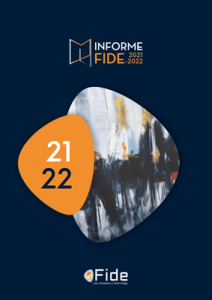
From the point of view of the results obtained over the last decade, the celebration of Safe Internet Day presents in 2021 a panorama that is at least worrying. Two recent examples prove it. The Online Citizenship Index Microsoft has concluded that Spain is the world leader in deception, scams, and online fraud. And although adolescents outnumber adults in online citizenship and awareness, the figures are bleak in relation to risks. For example, around 40 percent of the adolescents surveyed in the 32 countries included in the report, claim to have been involved in an incident of bullying, either as an object of it (13% in Spain), or as a spectator (33% in Spain). In addition, in our country 34% say they have received unwanted contact on the Internet and 26% claim to have been a victim of “sexting”.
In second place, publish this medium that organizations for the defense of consumer rights file a lawsuit against a fashion social network, considering that their practices affect consumers consumer rights and, in particular, to smaller. The conditions of privacy, registration and identity verification of the minors themselves, and the selection of advertising content made available to you, among other practices.
Both news confirm the deep concern that experts, teachers, and organizations of fathers and mothers or minors have felt for decades. Internet like life itself is a space with risks and dangers. Hence, it is essential, an education of minors aimed at take advantage of all the resources that the tool provides and at the same time identify, avoid, manage and even socialize risks to ensure adequate reaction of the authorities.
There are more than significant elements to consider that we are not doing things well. The risks for minors on the Internet cannot be addressed exclusively from awareness campaigns. Our effort requires the solidarity commitment of all the agents concerned. First, the role played by fathers and mothers It's fundamental. Studies show that they consider online gaming spaces and certain “playful” social networks as safe use of the Internet. This not only does not provide security for minors, but also poses a future of incompetent people in digital terms. In addition, the increase in interaction in networks and gaming spaces has exponentially multiplied the possibilities of improper contacts.
Second, the tools of network customization, the bubble filter, can generate risks associated with the use of advertising profiling and the selection of content viewed by minors. This is particularly significant if we take into account that in most of the casos registration on a network is based on a declaration of the age that minors are willing to misrepresent in order to enjoy the service. Conduct sometimes consented to by adults themselves.
This reality is accompanied by a significant skill gap trainers' digital data. The Internet has reached the classroom, but deep knowledge of risk management on the Internet does not. The effort has been significant in the choice of tools at the service of teaching, some experts in monetizing the privacy of minors, but very inefficient in training strategies for all teachers and in increasing the capacities of trainers and children In training.
From an industry point of view, little progress appears to have been made. On the one hand, the States have not provided tools to validate the identity of minors for general use. There is nothing as simple as a set of concerted keys for an institutional email account linked to the educational system. And yet, many services use this validation methodology with Gmail email accounts or Facebook user accounts to validate the identities of adults. It is disheartening that they are not implemented reliable methodologies for verifying the age of a minor.
This state of affairs should move us to deep reflection. In Spain, the Organic Law on the guarantee of digital rights defines a space for the protection of minors on the Internet, indicating very clearly and precisely that parents and legal guardians are responsible, and so are schools. In addition, it attributes to the Public Prosecutor clear competences in the matter, aimed at making the best interests of the minor. This rule also sends a clear message to the industry: companies must commit to the safety of the child. Mere formal compliance is not enough.
It is no coincidence that the expert editors of the Proposal for a Bill of Digital Rights have included the need to develop an impact study to verify how the use of the Internet is affecting the generations of minors and adolescents. The challenge we face is exactly the same as we faced the first time we celebrated Safe Internet Day. And yet The capacities of digital environments for data analytics, risk-generating agents and the difficulties posed by the context itself have multiplied exponentially. We can't wait, we should stop thinking about celebrating Safe Internet Day, and get started build it from today.

Ricardo Martinez Martinez
Director of the Chair of Privacy and Digital Transformation Microsoft-Universitat de Valencia. Member of the Academic Council of Fide.



















